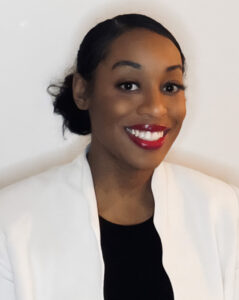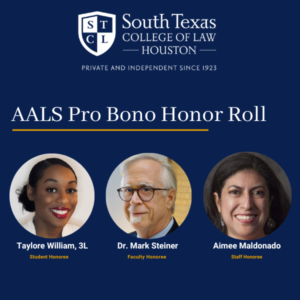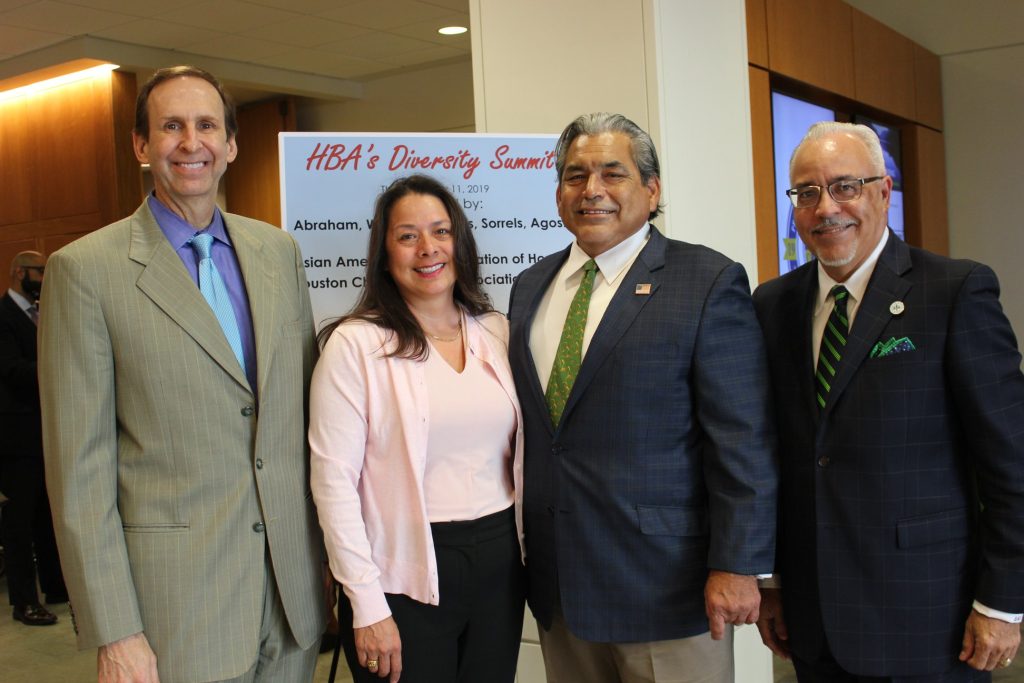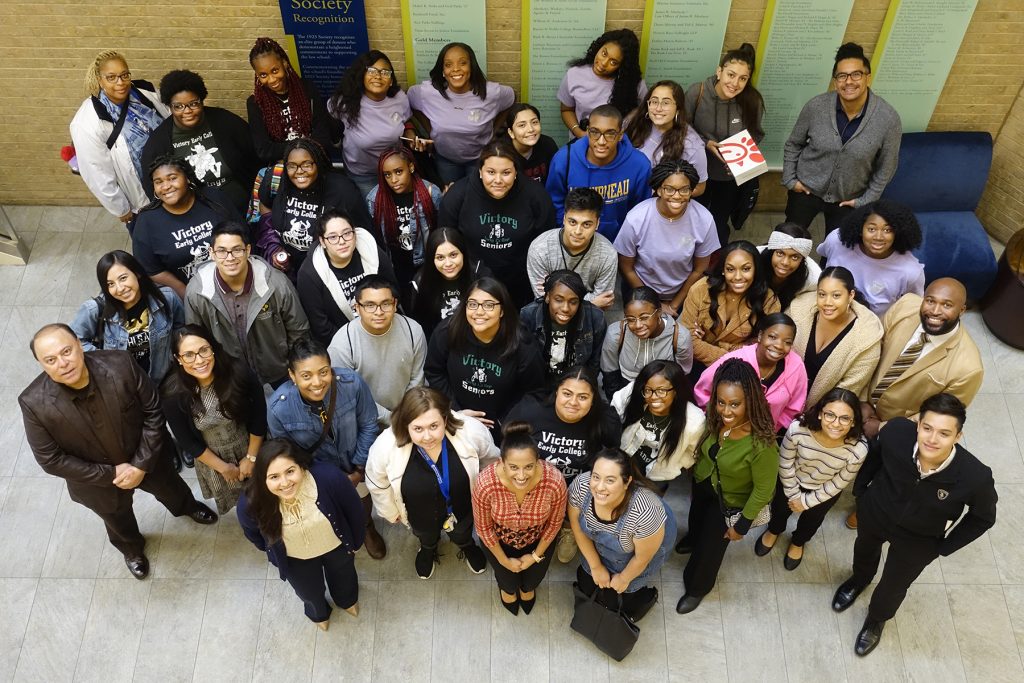
South Texas College of Law Houston received notice that Taylore Williams, a law student in her final semester, was commended by the Texas Access to Justice Commission for “her outstanding contributions to the provision of legal services to the poor.”
Williams was nominated by the law school as STCL Houston’s 2022 representative for the TAJC Law Student Pro Bono Award. The TAJC executive director, in her letter to the school, noted that she was “personally very impressed with Taylore’s work.”
Law school is Williams’ second career. Prior to law school, she worked as a scientist and regulatory affairs manager in cell and gene therapy at Lonza Biologics. She chose to attend STCL Houston was because she wanted to close the socioeconomic equity gap in the biopharmaceutical field. As she notes, the only way for scientists to discover new and unique solutions to medical diseases is by diversity of thought.
“Diverse groups of people from all socioeconomic backgrounds are needed to solve these complex problems,” Williams said. “However, lower socioeconomic populations are generally excluded from being able to engage in scientific research.” Her goal as an attorney is to help start-ups navigate the fundraising, corporate, legal, and regulatory landscape to ensure society has the best medicine science can create.
While in law school, Williams has been actively and passionately involved in the Actual Innocence Clinic within STCL
Houston’s Randall O. Sorrels Legal Clinics. This clinic is close to her heart. While working in Maryland, she volunteered as a track and field coach, and one of her athletes was wrongly convicted of a murder he did not commit.
“I felt helpless in that situation, and I never wanted another person to feel that way, so I enrolled in the Actual Innocence Clinic with Dean Burnett,” Williams said.

Her background in science was rare and valuable in the Actual Innocence Clinic. It allowed her to discover alternative ways science can be used to make sure the wrong person is not wrongfully incarcerated. She provided roughly 120 hours of pro bono work with the Actual Innocence Clinic.
“One of the problems we encountered in the clinic is sifting through all the mail we get from people who are incarcerated and think they have a claim,” Williams recalled. As part of her service, she worked on a machine-learning text analytics tool that would be able to sift through the mail and help determine potential claims vs. non-claims. After graduation, she wants to complete the tool so that the team at South Texas can spend more time helping clients and less time doing non-value-added work.
Outside of school, the majority of Taylore’ legal pro bono work is in the realm of government affairs as a lobbyist. She has had the opportunity to meet with legislators on the state and federal level to lobby for programs that benefit all levels of society. In the past year, she was able to go to Capitol Hill to meet with several senators on behalf of patient groups to lobby for the passing of two bills to benefit ultra-rare disease patients.
Williams went to Virginia Tech, and the school motto there is UT PROSIM, which is Latin for “that I may serve.”
“That is what pro bono means to me… being a servant to the most vulnerable people in society,” she said. “I think the kind of student you are is the kind of lawyer you will be. So even as a student, I have committed myself to serving others. I believe that we, as future leaders, have a responsibility to create pathways of accessibility for the next generation.”
At STCL Houston, Williams has been actively involved in the Black Law Students Association, serving on the BLSA board for two years. She has helped BLSA raise more than $9,000 for scholarships. With BLSA, she also has focused on helping students dealing with food insecurity and food instability, helping them understand how they can apply for SNAP benefits without feeling shame or guilt.
After law school, Williams plans to join Wilson Sonsini in the corporate and biotech transactional practice groups. With the skills she learns in the transactional practice group, she wants to help impoverished and underrepresented groups start tech companies. She also plans to continue working with the Actual Innocence Clinic because it is “very dear to my heart.”
Catherine Greene Burnett, South Texas associate dean for experiential education, professor of law, and director of the Actual Innocence Clinic, said, “Taylore exemplifies the passion and commitment that are hallmarks of the STCL Houston student.”



